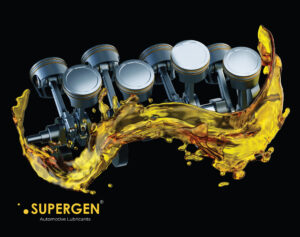Introduction:
Engine oil is a crucial element in any vehicle as it plays an important part in lubricating various parts of the engine to reduce friction and minimize unnecessary power loss. A properly lubricated engine burns fuel more efficiently, resulting in better performance. However, lubrication is just one task. Reduced friction prevents damage to parts and surfaces exposed to friction. Wear is minimized, resulting in longer component life. A good engine oil prevents formation of sludge that can clog the narrow oil passages in the engine and unwanted chemical reactions on the surface of engine parts, such as corrosion. Corrosion of parts usually leads to loss of functionality and increased engine emissions. Without proper oil flow, your vehicle’s fuel consumption will increase and performance will suffer.
Which engine oil is best for TATA Nexon?
As mentioned earlier, the type of engine oil required for a particular car depends on the make and model of the car, engine design, year, usage, etc. Petrol and diesel engines are very different in how the two fuels work and burn. For this reason, there are usually different recommended engine oils for gasoline and diesel engines. For Tata Nexon engines, the recommended grade of engine oil is 5W/30 or OW/20 synthetic oil. Before changing engine oil, it is important that car owners understand the recommended grade of engine oil for their vehicle and use only the grade specified in the owner’s manual.
TATA Nexon’s Engine Oil Specifications
The best motor oil for Tata Nexon vehicles is one that meets the manufacturer’s specifications and recommendations found in the owner’s manual. It is important to refer to your owner’s manual or contact a Tata Motors Authorized Service Center for exact engine oil specifications for your specific model year and engine type.
Oil Viscosity
The viscosity of engine oil indicates how easily the oil flows at a given temperature. Thin oils are less viscous and easier to pour cold than thicker, more viscous oils.It is usually expressed as a number combination such as 5W-30 or 10W-40. The first number indicates the oil’s viscosity at low temperatures (lower numbers mean better fluidity) and the second number indicates its operating viscosity. Temperature.
Oil Quality
To ensure optimum performance and protection of your Tata Nexon engine, it is highly recommended to use an engine oil that meets the manufacturer’s recommended viscosity grade, API specifications (usually API SN) and ACEA specifications (e.g. ACEA A3/B4 or ACEA A5 or better) recommended. )/B5). Also, it is recommended to choose motor oil from a well-known brand that has a proven track record of producing high-quality oil.
TATA Specifications and Approvals:
TATA designates specific oil specifications and approvals to ensure compatibility and performance. These specifications vary by engine type and model year. Common TATA oil specifications include OW/20, 5W/30, 20W 40 and others. Always refer to your vehicle manual to determine the correct specifications for your particular Tata Nexon model. By following the manufacturer’s recommendations and using an engine oil that meets the proper specifications, you can ensure the longevity and efficiency of your Tata Nexon engine.
Choosing the Right Engine Oil
There is a heap of information out there on the various oil options, but the first step is pretty easy. Check your car manual. See your vehicle’s owner’s manual for the recommended amount of oil, whether it’s a standard type such as 10W-30 or a more specialized one. Below mentioned are a few factors you should consider when choosing the right engine oil.
Car Manufacturer and Series:
The first step in choosing the right motor oil is knowing the make and model of your vehicle. New high performance engines are being developed to improve efficiency, and new oil formulations are also being developed to accommodate these improvements.
Synthetic and conventional products:
Synthetic oils are generally considered superior to conventional oils because they provide better lubrication, performance and protection. Synthetic oils are expensive, but they are worth the investment in your VW Polo because of their cleaner engine, better fuel efficiency and longer drain intervals.
Oil Standards
The labels specify motor oil standards identified by various acronyms such as API, ACEA, and ILSAC. This means that the products meet or exceed the requirements set by these organizations. Specifications are important because they are indicators of oil performance and quality. The most common standards are API (American Petroleum Institute) and ACEA (European Automobile Manufacturers Association).
Talk to an expert:
If you are unsure of which motor oil to choose, do not hesitate to consult an expert or a trusted mechanic at a Tata Authorized Service Center. They provide valuable insight and recommend the best oil for your particular Tata Nexon model.
How many liters of oil is required in a Tata Nexon?
The amount of engine oil required for your Tata Nexon varies slightly depending on engine model and displacement. However, as a general guide, most Tata Nexon models typically require about 3 – 5.5 liters of engine oil for a complete oil change.
To get an accurate reading, it is important to refer to your owner’s manual or oil cap information which will give you the exact oil capacity for your particular engine version. These sources also list recommended oil types, viscosities, and any additional specifications or approvals required.
How often should the Tata Nexon’s engine oil be changed?
The frequency of oil changes for your Tata Nexon depends on several factors such as model year, engine type, driving conditions and type of oil used. To start with, the Nexon has a service interval of 6 months or 7500 Km, whichever is earlier. However, not every service requires an oil or oil-filter change. It is important to refer to the manufacturer’s specific recommendations in your vehicle’s owner’s manual. However, as a general guide, here are some common oil change intervals.
For Conventional oil:
If you are using conventional oil, it is generally recommended to change the oil every 4,800 to 8,000 kilometers (3,000 to 5,000 miles) or every 6 months, whichever comes first. However, please note that newer vehicles and VW models may require longer oil change intervals.
For Synthetic oil:
Oil change intervals are usually longer when using the synthetic oils recommended in modern vehicles. It is common to change synthetic oil every 7,500 to 10,000 miles (12,000 to 16,000 kilometers) or every 6 to 12 months, depending on the manufacturer’s recommendations.
Is Synthetic Oil the best choice for TATA nexon?
Today’s motor oil market operates on three levels. Mineral oil is considered good. A mixture of mineral and synthetic oils is better. And pure synthetic oils are considered the best. There is no standard definition of synthetic oil.Some synthetic oils actually use synthetic oils as their base, while others use highly refined mineral oils as their base.
Synthetic Oil has the following advantages:
- Better fuel economy
- Longer intervals between oil changes
- Allows for a better start in cold weather
- Ability to remove accumulated sludge in the engine
There are not many drawbacks to using synthetic oils, but there are drawbacks. Synthetic oils cost about 6 to 10 times more than conventional motor oils. Since synthetic oils are made entirely in the laboratory and go through extensive chemical processes, they are quite costly as compared to regular engine oil. Nevertheless, when compared to how often regular oil needs to be changed, synthetic oil might also prove cost efficient in the long run.
Myths about Synthetic Oils, BUSTED
Here are some myths and facts about synthetic oil, read on
- After using synthetic oil, you cannot switch back to mineral oil: You can switch as many times as you like without taking damage.
- Synthetic oil is too expensive:It also protects the engine better, changes it less often, and increases the oil cost by a few dollars.
- Only high-performance and ultra-luxury cars need synthetic oil: Any vehicle can benefit from adding synthetic oil and extending oil change intervals.
- Synthetic oils damage seal: Synthetic oils will not cause leaks, but you may find edge seals as a result of lack of maintenance.
- Synthetic oil must be changed every 3,000 miles (4,500 km): No, the oil change interval is generally longer. It is common to change synthetic oil every 7,500 to 10,000 miles (12,000 to 16,000 kilometers) or every six to twelve months, depending on the manufacturer’s recommendations.








